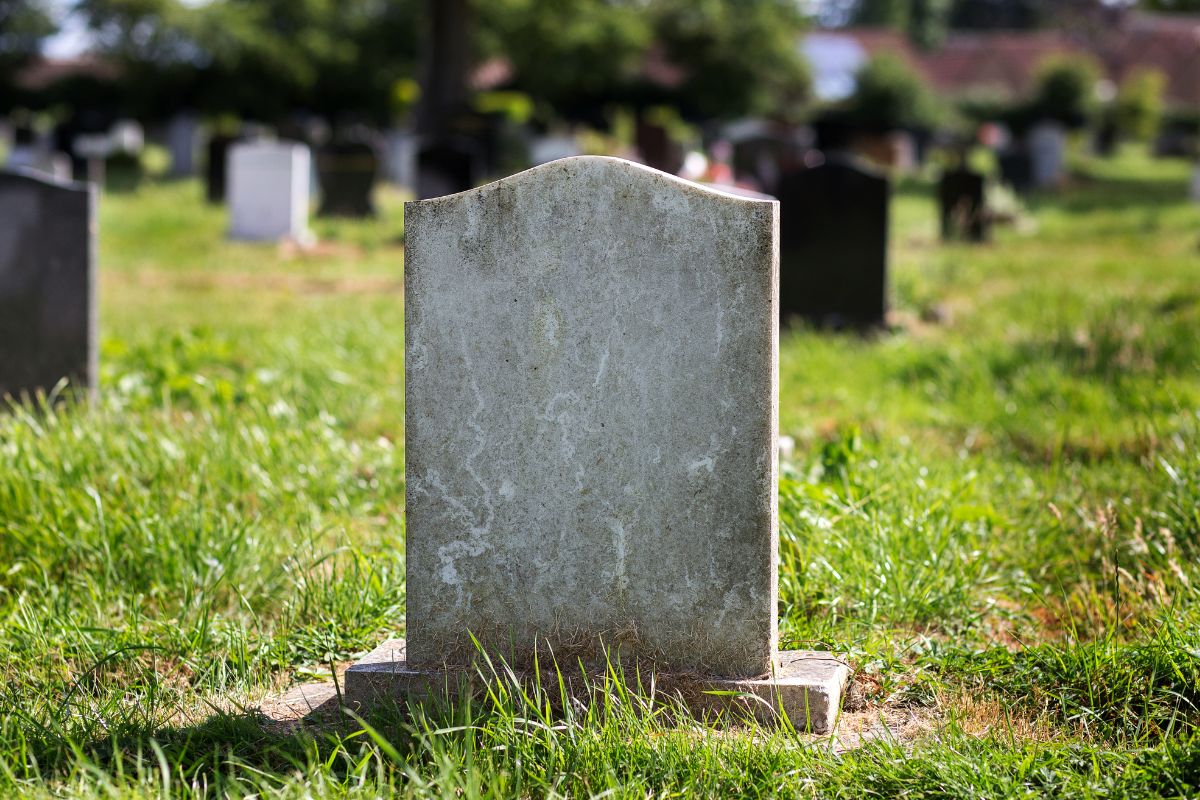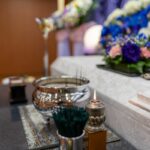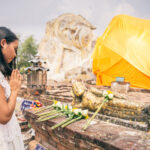A funeral is a time to pay your respects to the deceased solemnly. It is also where you will be showing kindness and being respectful towards the family too.
In Japan, what you say and what you do is very important during a funeral. There are many traditions that play a huge role. This is especially true if the funeral is religious.

For this reason, it is important that you know what to say if you ever attend a Japanese funeral. For example, “okuyami moushiagemasu” is a simple way of telling the family “I am sorry for your loss”.
You might also need to know how to dress.
In this article, we shall explain what Japanese people say when someone dies, as well as how you can pay your own respects to the deceased while wearing the correct attire.
So, read on to find out more!
How Do You Give Your Condolences During A Funeral In Japan?
If you are wondering what to say when it comes to attending a funeral in Japan, then you may want to try using some of these phrases and words to avoid offending anyone:
Okuyami Moushiagemasu
If you are looking for something basic and easy to say, then “ okuyami moushiagemasu” will be your go-to phrase. It means “I am sorry for your loss”.
Goshuushou Sama Desu
Another way of saying the above is by using the phrase “goshuushou sama desu”. However, it is a generalized version.
Aitou No I O Arawashimasu
If you are writing, rather than saying your condolences, then it is acceptable to say aitou no i o arawashimasu which means ‘please accept my condolences’.
However, it is often used in formal speeches too, rather than by the average person.
Gomeifuku O Oinori Moushiagemasu
This phrase is often used in Buddhist ceremonies. For this reason, you will want to be careful not to offend the deceased’s friends and family.
If the family of the deceased is not Buddhist, then they may find “gomeifuku o oinori moushiagemasu” offensive. It means “May they rest in peace in the afterlife”.
If they do not believe that the afterlife exists, then it will be deemed disrespectful.
Are There Things You Should Not Say During A Funeral In Japan?
There are things that you should avoid saying during a funeral in Japan. This is because it comes across as disrespectful. Some of these include:
Don’t Try To Encourage Positivity
As a Westerner, one of your first thoughts might be to try and encourage positive thoughts. However, this is not seen the same way in Japan.
It can put extra pressure on the bereaved to try and feel a certain way. Instead, greave alongside them and empathize with their feelings.
Avoid telling them to:
- “Cheer up” – “Genki o dashite kudasai”
- “Do your best” – “Ganbatte kudasai”
Avoid Talking About Sensitive Subjects
You will want to avoid talking about certain subjects. This means asking questions about why the deceased passed away, and any other details that relate to it.
These questions will be very painful to answer, and rightly so. You may also want to avoid any questions that have to do with the deceased’s personal life.
This could be to do with their financial situation, or even inheritance – or lack of it.
You will also want to avoid talking about subjects such as religion or politics. Keep the conversation light and geared towards respect for the deceased and the deceased’s family.
Do Not Say ‘Death’
Despite being at a funeral, you will want to try really hard not to use the word “death”. This is because it is seen as far too straightforward and to the point. It is also the sad fact of why everyone is here.
You can instead say “eternal sleep” which is eimin or seikyi in Japanese. It is a softer way of talking about the subject.
You will also want to avoid saying “sudden death” too. One way of softening this is by saying ‘sudden event’ instead. In Japanese it is said totsuzen no koto or kyuusei.
Avoid Phrases Bring Repeated
This one might seem quite odd to us Westerners but try to avoid sounding like you are going through repetitions of feeling unhappy. For example, you will want to avoid saying how unhappy you are “again”.
Adverbs in Japanese such as “kurekure”, “tabi tabi”, and “masu masu” can all lead to the repetition of unhappiness.
Should You Give Money At A Funeral In Japan?
People often give koden, which is condolence money. However, it needs to be given properly otherwise it will cause offense. It is put into a kodenbukuro which is a white-colored envelope.
A silk cloth is then wrapped around it. It supports the family with any funeral costs, or it may be given to a charity.
However, one thing to note is that the money should never be new. This gives the feeling that you were expecting the person’s death. Instead, fold the notes and make them look old before handing them over.

What Should You Wear To A Japanese Funeral?
If you are attending a Japanese funeral, then you will need to know what to wear. The best rule to go with is simple is more. However, there are some stricter rules.
Women
Women should wear black, though sometimes a dark navy is okay. However, your best bet is to go with black. When it comes to the actual clothing, a black dress can be worn, but it must not be tight-fitting or low-cut.
Instead, it should reach just below the knees, and be worn with black-colored or skin-colored stockings. Simple dress shoes are also a must. No flashy or colorful clothes should be worn.
Women can also wear a skirt of the same length along with a blouse.
The jewelry should be kept simple. A pearl necklace is allowed, as is a wedding ring. Nothing else is deemed appropriate.
It is also best to avoid perfume altogether. Women with long hair should tie it into a bun.
Men
For men, the same rules apply when it comes to the color of the attire. The only difference between men and women is that the men should wear a white shirt with their black suit and tie.
Men should also wear simple black dress shoes and only a wedding ring as jewelry. Again, you will want to avoid wearing any type of fragrance if possible.
Young People
The most common attire for young people to wear at a funeral is their school uniform. If they are not a student, then this rule does not apply to them.
Final Thoughts
In Japan, the funeral is very respectful, solemn, and often traditional. Many of the ‘rules’ of the Japanese funeral haven’t changed in a long time.
This means that if you go to a Japanese funeral, or have a friend who is dealing with a death, you will want to know the correct things to say and do.
Often the wrong thing said can offend the family or friends of the deceased.
Fortunately, there are a few things you can say to ensure you are sympathetic to those who are grieving.
- 16 Best Websites To Watch Japanese Movies With English Subtitles - May 11, 2023
- Is ZIPAIR The Best Airline For Traveling To Japan? - May 11, 2023
- Ryu Murakami Vs Haruki Murakami – Which One Should You Read? - May 11, 2023








